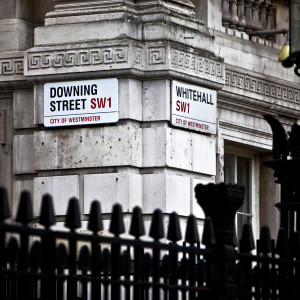American politicos and chattering classes are reading tea leaves from last week’s British elections to see if there are any lessons for them. They don’t have to search hard to find the most powerful one: keep your promises. A decisive tranche of British voters turned the election into a referendum on trust.
The center-left Liberal Democrats provided the starkest lesson of the importance of keeping promises made in a campaign. They did not and were demolished. They earned their humiliation. In the 2010 general election campaign, the Lib Dems thrived as an alternative to the two major parties, Labour and the Conservatives, that had alternately governed the nation for a century. The Lib Dems appeared fresh and vigorous under telegenic and smooth party leader Nick Clegg.
The Lib Dems won a record 57 seats in 2010, denying the first place Tories a majority. The Lib Dems have always made a claim to owning the copyright on rectitude. Virtue unsullied by the compromises of governing was always one of their calling cards. A political party that never wins is free to make high falutin’ campaign promises it never gets to implement.
The Lib Dems and the Tories formed a majority, promising to provide stable government. Their first task, they agreed, would be to reduce the ballooning deficit left by the discredited Labour government.
It seems obvious five years later. One way the Lib Dems distinguished themselves from the other parties in the 2010 campaign was by promising not to raise university fees. It was not shaded or subtle. That pledge possessed the sort of clarity voters say they want in politicians. Only the Lib Dems made it. It was their “Read my lips, no new taxes” moment.
One of the first things the coalition government did was raise the cap on university fees to about $15,000. The Lib Dems never recovered. A groveling 2012 video apology from Nick Clegg, who became deputy prime minister in the coalition deal with the Tories, did nothing to assuage the public’s anger.
They never had a chance. The Lib Dems were demolished on May 7th, reduced to a rump of 8 seats, not even enough to fill two London cabs is a popular and stark measurement of their fallen state.
The Tories picked off enough Lib Dem seats to win a narrow outright majority. Labour also suffered from a trust deficit, and a political party has nothing to build on without a foundation of trust. Not affection, trust. Labour leader Ed Miliband provided a rare memorable moment in the campaign when he refused to admit during a televised interview in April that his party had erred by running large budget deficits before the 2008 financial crisis. A studio audience hooted its derision at Miliband’s denying what has become national orthodoxy about the nation’s deep budget deficits.
English doubts over Miliband’s pledge not to form a coalition with the surging Scottish Nationalist Party (SNP) contributed to a defeat that left Labour with the fewest seats it’s held in decades. The prospect of the SNP holding the decisive votes in the House of Commons appears to have sent late deciding English voters to the Tories.
The British elections provide a useful tonic to American candidates getting ready to launch presidential campaigns on a cloud cuckoo land platform of unrealistic promises. One of those promises is immigration. The British election revealed the complicated views of a nation, like ours, that has a distinguished history of welcoming immigrants.
In 2010, the Tories promised to reduce the number of net immigrants to below 100,000. They were unequivocal. They took some steps but Britain’s economy, the fastest growing in Europe, is an irresistible attraction to strivers from other countries.
The United Kingdom Independence Party (UKIP) was expected for most of the campaign to ride its relentless anti-immigration policies to victory in enough seats to deny the Tories a majority. UKIP’s leader, Nigel Farage, and many of his acolytes pinned every British ill – including in Farage’s lowest moment, HIV positive immigrants – on immigration.
UKIP was a notable failure in a year full of them. The party began the campaign with two members of the Commons and ended it with one. Britons want secure borders. They don’t hate immigrants, and neither do Americans.

